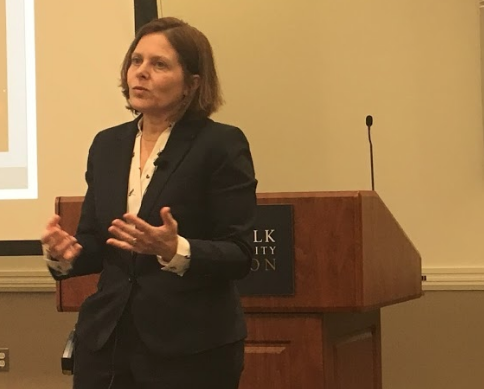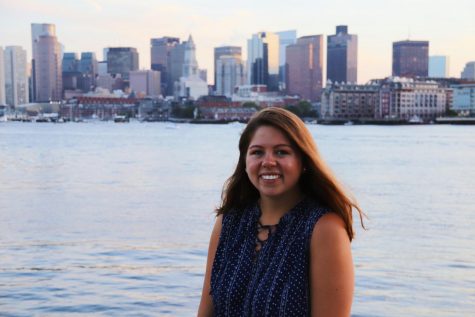
From the University of California, Berkeley to the streets of Charlottesville, VA, the topic of free speech has sparked debate and protest in recent months. Across the country, universities are trying to devise a plan where students can be educated in an orderly, learning environment and have free inquiry to express their thoughts and ideas.
Sigal R. Ben-Porath, professor of Education, Political Science and Philosophy at the University of Pennsylvania gave her opinions and possible solutions to this ongoing dilemma. She emphasized that students should be seen as equal members of the school community.
“The work on maintaining an inclusive and free environment is part of the work that we do as a college campus. This is part of our mission, it’s part of who we are,” said Ben-Porath. “And so what we need to always ask is: have I created the conditions to allow for the dialogue to continue?”
The concerns surrounding free speech on college campuses stemmed from multiple factors. According to Ben-Porath, an increase in diversity, including a bigger representation of racial minority groups as well as a greater divide between democrats and republicans, has brought different perspectives to higher education institutions.
Ben-Porath’s lecture inside Sargent Hall last week tackled the concerns and solutions to creating a college environment where all students have the ability to speak openly, even if their opinions are unpopular or cause debate.
“It’s a reason for me to be very proud of our institution, that it moved very quickly after those events in August to think about how Suffolk would respond and preserve its principles as a community but also embrace this question of free speech,” said professor and chair of Suffolk’s philosophy department Gregory Fried.
Ben-Porath listed a number of obstacles that have prevented free speech from occurring on campus. She said civility contracts, regulating speech in a way that satisfies political demands and prioritizing bias reporting systems have all been counterproductive to free speech.
“You want students not to feel intimidated when they are reporting that somebody is treating them unfairly, so I understand the motivation [of bias reporting systems],” said Ben-Porath. “But I think these kind of approaches are undermining students relationships to their instructors.”
Ben-Porath focused on how to create and maintain an inclusive environment in school communities so students are able to share their opinions confidently and have open discussions on topics that influence and impact them, even if some of the conversations involve sensitive issues. In addition to students’ ability to speak their minds, Ben-Porath said that professors should encourage conversation that arises in class even if the conversation strays away from their lesson plan.
“I try to create to basically model as much as I can a comfortable and respectful classroom environment where I allow for students to speak their mind,” said Communications and Journalism professor Shoshana Madmoni-Gerber in an interview with The Suffolk Journal. “I encourage students to ask questions, to say if they’re not comfortable with something. I try to check in to see how students feel about a specific topic.”
Two seniors in attendance, Claire Mulvena and Elena Jacob, said in an interview with The Suffolk Journal that they have had no issues with free speech during their time at Suffolk. Ben-Porath showed them a new point of view in the issues revolving around free speech debate and allowed them to think about it from a different angle.
“There’s a lot of grey area that I think you don’t understand when [you’ve only experienced] the student perspective,” Mulvena said. “I think it’s interesting hearing from a professor who is not only really kind of supporting free speech but also has to think of it in terms like, ‘I have to run an institution,’ so I thought it was interesting.”
This event was hosted by “Before and After Charlottesville: Inclusion and Freedom in Dialogue,” Suffolk University’s yearlong initiative that was launched in the wake of the events of Charlottesville, V.A., after a white nationalists rally became violent in August 2017. The series invites guest speakers, screens films and other events for the Suffolk community that are directed at issues that could emerge after the controversy in Virginia.
The “Before and After Charlottesville: Inclusion and Freedom in Dialogue,” initiative has more events planned for this semester, which include a “Congress to Campus” event on February 28 and a screening of the film “Gook” on March 22.



















